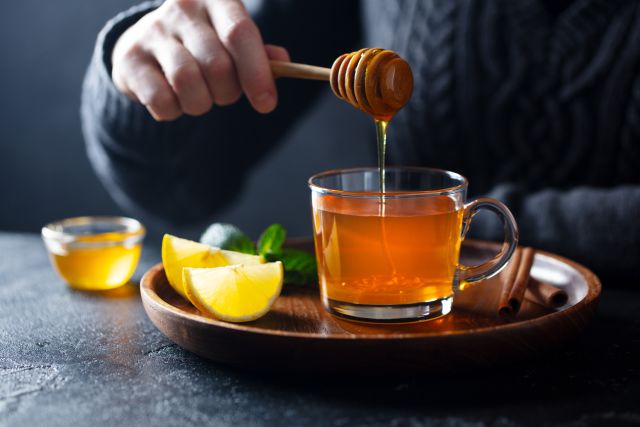Updated on March 8, 2024.
Try some honey for a cough. Gargle with salt water to relieve a sore throat. Load up on chicken soup to ease congestion. Odds are your mom suggested these home remedies at one time or another.
Turns out, she was probably right—about at least a few of them. Some home remedies actually work to relieve symptoms. And while they won’t succeed for everyone, they're often worth a try in addition to consulting with a healthcare provider (HCP).
Gargle with saltwater for a sore throat
It’s true. Gargling with a simple mixture of water and table salt can temporarily relieve throat pain. In one small trial, people with respiratory infections who combined nasal irrigation with gargling reduced the duration of symptoms by almost two days, compared to people who didn’t gargle. The results were published in the journal Scientific Reports in 2019.
For best results, mix 1 teaspoon of salt with 1 cup of warm water, then gargle up to several times each day. Many experts recommend the practice only for people aged 7 years and older, since younger children may accidentally swallow the mixture. While swallowing small amounts of saltwater is generally safe, it could contribute to nausea, vomiting, and bloating—and larger amounts may lead to dehydration.
Take honey for a cough
A spoonful of honey can help a sick kid by lessening their cough, soothing a sore throat, and ultimately, helping them sleep better. A 2021 systematic review and meta-analysis published in BMJ Evidence-Based Medicine, for example, concluded honey was superior to usual care for reducing cough frequency and severity.
If you decide to use honey, make sure it’s the genuine item and not an imitation product made largely out of corn or rice syrup. Real honey will sink to the bottom of a cup if it’s combined with water; fakes will dissolve in the liquid.
One caveat: Don’t give honey to kids younger than 1 year old. The honey could contain Clostridium botulinum spores, which could cause infant botulism.
Try ginger for nausea
Ginger may ease a queasy stomach, some research—and plenty of anecdotal evidence—suggests. One 2022 review in the International Journal of Molecular Sciences concluded that it relieved both acute and delayed side effects of breast cancer chemotherapy, such as nausea and vomiting. Similarly, a 2019 review of breast cancer studies in Phytotherapy Research found that ginger eased acute chemo side effects, and that more study was needed on additional effects.
While studies have generally shown ginger supplements to be effective, many people have found that ginger ale (if it contains real ginger), raw or pickled ginger, ginger candies, and ginger tea are helpful. Just be sure not to overdo it, since large doses may cause side effects such as heartburn and diarrhea.
And if you’re pregnant? While some research suggests ginger is safe, it’s always a good idea to speak with an HCP first, such as an OBGYN.
Eat chicken soup or other warm drinks for a cold
There are a handful of studies dating back to 1978 exploring how and why chicken soup affects a cold—and possibly the flu, as well. A key 2000 study in Chest, for example, suggested that it may have anti-inflammatory effects. Other research suggests that hot liquid, including soup, may help temporarily thin mucus and clear congestion in your airways. Soup also provides liquid to help prevent dehydration, though it’s not a substitute for water or other hydrating fluids.
That said, while anecdotal evidence and limited research supports the use of chicken soup, the jury is still out on whether it has a clear benefit for sick people. It won’t cause harm, though, and may very well soothe you.
If chicken soup doesn’t suit your palate, other research suggests that other warm beverages may help relief some cold symptoms.
One small study found that drinking a hot, fruit-flavored beverage seemed to offer wider-ranging cold and flu relief than did sipping a room-temperature drink. Specifically, sore throats were better soothed and fatigue and chills were kept more effectively at bay.
Researchers suspect that it was likely the taste, smell, and temperature of the drink that had the beneficial effect, with the heat being particularly helpful at stimulating the production of throat-soothing saliva and mucus. (It’s also possible that there was some placebo effect in drinking the warm beverage.)
While mom has all of the answers (mostly), if your home remedies aren’t proving effective, a trip or call to an HCP is likely in order.







